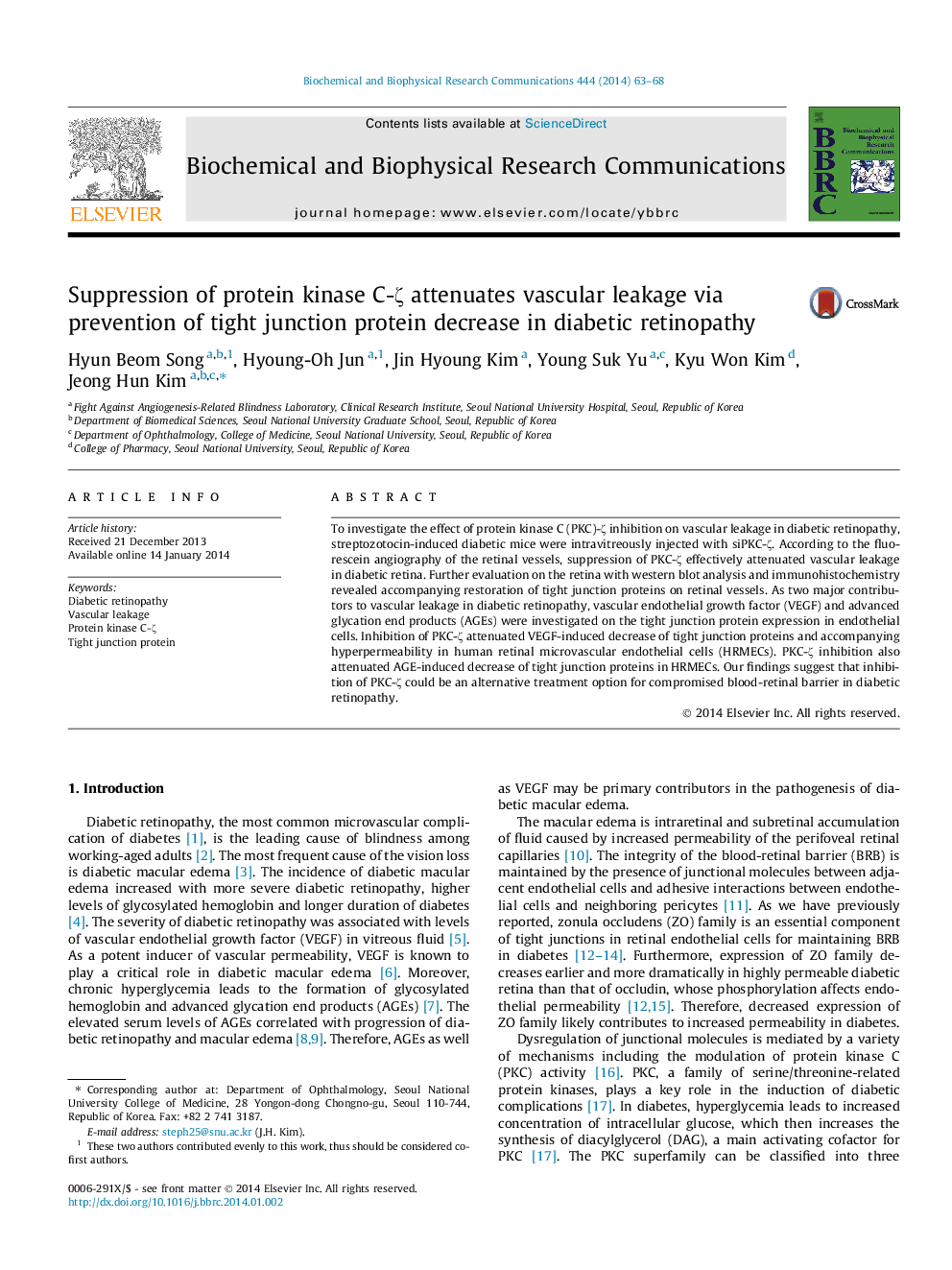| Article ID | Journal | Published Year | Pages | File Type |
|---|---|---|---|---|
| 1928620 | Biochemical and Biophysical Research Communications | 2014 | 6 Pages |
•Suppression of PKC ζ effectively attenuated vascular leakage in diabetic retina.•Inhibition of PKC ζ prevented tight junction protein decrease on retinal vessels.•PKC ζ inhibition prevented tight junction loss in HRMECs under diabetic condition.
To investigate the effect of protein kinase C (PKC)-ζ inhibition on vascular leakage in diabetic retinopathy, streptozotocin-induced diabetic mice were intravitreously injected with siPKC-ζ. According to the fluorescein angiography of the retinal vessels, suppression of PKC-ζ effectively attenuated vascular leakage in diabetic retina. Further evaluation on the retina with western blot analysis and immunohistochemistry revealed accompanying restoration of tight junction proteins on retinal vessels. As two major contributors to vascular leakage in diabetic retinopathy, vascular endothelial growth factor (VEGF) and advanced glycation end products (AGEs) were investigated on the tight junction protein expression in endothelial cells. Inhibition of PKC-ζ attenuated VEGF-induced decrease of tight junction proteins and accompanying hyperpermeability in human retinal microvascular endothelial cells (HRMECs). PKC-ζ inhibition also attenuated AGE-induced decrease of tight junction proteins in HRMECs. Our findings suggest that inhibition of PKC-ζ could be an alternative treatment option for compromised blood-retinal barrier in diabetic retinopathy.
